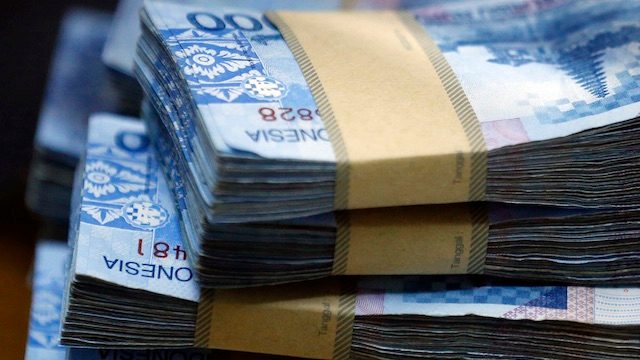SUMMARY
This is AI generated summarization, which may have errors. For context, always refer to the full article.

TOKYO, Japan – The dollar weakened against emerging currencies Monday, October 19, as growth in China’s economy in the 3rd quarter slowed to the weakest pace since the global financial crisis but still beat analysts’ expectations.
Indonesia’s rupiah swung in an out of positive territory throughout the morning and was flat in early afternoon.
The South Korean won, the Australian dollar and the Singapore dollar rose after the data from Beijing gave a lift to confidence, while expectations the Federal Reserve will delay an interest rate hike also provided support.
Global markets have rallied in October – following a massive sell-off in the July-September quarter – with emerging currencies the main beneficiaries as bets on a 2015 rise in US borrowing costs recede.
After saying in early 2015 that a rise was expected as the US economy picked up pace, bank policymakers have gradually lowered their expectations, with turmoil unleashed by China’s yuan depreciation in August playing a major role.
China’s National Bureau of Statistics (NBS) said Monday morning that growth in July-September eased to 6.9 percent, the weakest since 2009 at the height of the global recession but better than the 6.8 percent tipped by analysts in an AFP survey.
“The number was better than expected but it did suggest that Chinese economic activity is slowing, just not at the worrisome pace that the market initially anticipated,” Elias Haddad of the Commonwealth Bank of Australia told Bloomberg News.
The won advanced 0.63% against the dollar, while the Singapore dollar gained 0.09% and the ‘Aussie’ rose 0.15%.
The won has gained about 5% against the US unit this month, while the Australian dollar – which relies heavily on resources shipments to China – advanced more than 3%.
“Any relief rally in the Australian dollar or the commodity complex in general should be limited because the fundamentals haven’t changed,” Haddad of the Commonwealth Bank of Australia said.
The Malaysian ringgit dipped 0.87% against the dollar, while the Thai baht, Taiwan dollar and Philippine peso also weakened.
The US unit fell to 119.42 yen from 119.49 yen Friday in New York, after sinking as low as 119.16 at one point Monday.
The euro traded at $1.1362 and 135.71 yen compared with $1.1353 and 135.65 yen in US trade. – Rappler.com
Add a comment
How does this make you feel?
There are no comments yet. Add your comment to start the conversation.